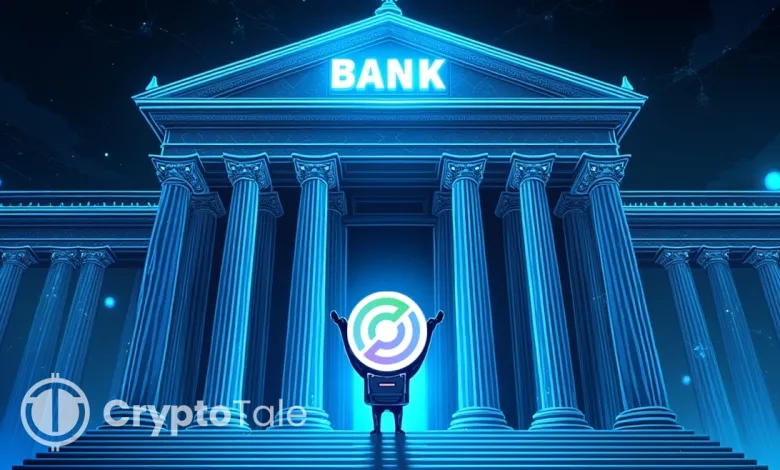Circle Seeks OCC Charter to Manage USDC and Offer Custody

- Circle wants to manage its USDC reserves and offer custody through the US national trust bank, Charter.
- The move would let Circle meet new U.S. rules and avoid state license requirements.
- Circle stock rose to $181.29 and now trades under strict public and regulatory watch.
Circle, issuer of the USDC stablecoin, has submitted an application to establish a national trust bank, aiming to manage its own reserves and offer institutional crypto custody services. The proposed entity, named First National Digital Currency Bank, N.A., would operate under the direct oversight of the U.S. Office of the Comptroller of the Currency (OCC), removing the need for state-level licenses. If approved, this move would allow Circle to manage digital assets directly, including those backing its stablecoins, while operating with a federal regulatory structure.
The application signals Circle’s intention to evolve from a fintech issuer to a fully regulated financial infrastructure provider. The company would join Anchorage Digital as one of the few crypto-native firms holding a federal trust charter. Under this framework, Circle would not be allowed to take traditional cash deposits or issue loans. Instead, it would serve as a national custodian of digital assets and manage the reserve backing of USDC, which is the second-largest dollar-pegged stablecoin globally.
Circle stated that gaining a federal trust charter would support its efforts to comply with rules outlined in the GENIUS Act, which was approved by the U.S. Senate on June 17 and is now under review in the House of Representatives. Co-founder and CEO Jeremy Allaire noted that the company is taking early action to enhance the structure behind USDC and ensure it fits within upcoming U.S. laws that aim to regulate the creation and use of dollar-based payment stablecoins.
A Step Toward Self-Custody and Regulatory Compliance
Circle said in a statement that the new bank would help “support the issuance and circulation” of USDC and provide secure custody solutions to institutional investors. Currently, Circle has partnered with custodians like BNY Mellon and BlackRock for reserve management. The trust charter would allow Circle to take direct control over these reserves while continuing to use third-party custodians for additional oversight and operational redundancy.
According to legal firm Davis Wright Tremaine, national trust banks are not permitted to hold retail deposits or make consumer loans, but they can operate across the country without acquiring state-by-state licenses. This structure allows broader institutional service coverage without requiring compliance with patchwork regulations from multiple jurisdictions. Jeremy Allaire, CEO of Circle, told Reuters that applying for a national trust bank is a “continuation” of the company’s long-standing goal to build trust and transparency around its operations.
The company already has a robust compliance track record, including a BitLicense from the New York Department of Financial Services, MiCA compliance in the European Union, and regulatory approval from Abu Dhabi’s Financial Services Regulatory Authority. If this is approved, the U.S. trust bank designation would expand Circle’s credibility and open the door for expanded custody offerings beyond USDC, including tokenized securities and euro-backed stablecoins.
Related: Circle Mania in South Korea Signals Stablecoin Investment Rush
Institutional Adoption in Focus as Circle Goes Public
Circle’s trust bank application follows closely on the heels of its public market debut. Circle Internet Group Inc. (NYSE: CRCL) closed at $181.29 on June 30, rising 0.48% from the previous close of $180.43. The stock moved within a day range of $178.00 to $192.50, while after-hours trading saw a 1.30% dip to $178.94.
Source: Google Finance
With a market capitalization of $40.34 billion and an average volume of 26.49 million shares, Circle continues to be one of the most actively traded digital asset companies. It also holds a price-to-earnings (P/E) ratio of 234.81 which reflects high investor expectations for future growth. Circle does not currently pay a dividend.
The trust charter would allow Circle to cater directly to institutional clients that demand transparent, compliant digital asset solutions. Circle’s move could prompt other stablecoin issuers to consider similar applications to stay competitive in a regulatory environment that is rapidly evolving.




